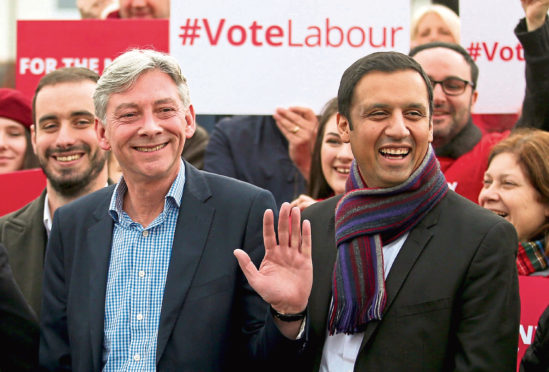The Scottish Labour Party has an unfortunate habit of kissing princes and princesses who quickly turn into frogs.
Every hot prospect over the past decade who has picked up the mantle of leadership has soon dropped it again, bruised, defeated and humiliated. Perhaps only the manager’s job at Chelsea has been as precarious, though it’s better paid.
Those of us who value a strong Labour presence in politics have been cruelly denied it on both sides of the border.
Ed Miliband sometimes looks good in retrospect, but only because of the calamity that followed.
The prolonged period of self-indulgent leftism under Jeremy Corbyn enabled the easy continuation of Tory governments, cleared the way for Brexit, and did significant damage to the gravitational strength of the Union.
In Scotland the situation has, if anything, been worse. The party has sunk to near irrelevance in what has become a two-way constitutional square-go between the SNP and the Conservatives. This is a fight the Nationalists are always likely to win, in the process accelerating Scotland’s apparent drift from the UK.
Enter Anas Sarwar. He follows in the footsteps (or, preferably, doesn’t) of Wendy Alexander, Iain Gray, Johann Lamont, Jim Murphy, Kezia Dugdale and Richard Leonard. Each has led since Labour lost power at Holyrood in 2007. Each spoke of a fresh start and of restoring the party to esteem. Each – regardless of promise, ability or ideological leaning – fled empty handed and diminished after a few short years, and quite often less.
The electorate has long since run out of patience with Labour. Labour has run out of patience with Labour. Too far gone, too bafflingly, stubbornly entitled, too long shambling lost among the earthworks and twists and turns of modern Scottish debate. We have learned to do without them.
Politics is a funny mistress, though. It is rare for a party – especially one as storied as this – to be down and out for good. At some point your opponents wrinkle and run out of steam, you finally hit on an offer that through chance and timing finds a receptive audience, and the voters decide they want a change.
Remember how Labour were supposedly finished for good in the Thatcher years? How the Tories were done for in the New Labour era?
The pendulum always swings, eventually.
The SNP have been in power at Holyrood for 14 years, which is already too long. Like all long-governing parties they have run through most of the policy agenda they began with, and are distanced from the memory of defeat and suffused with a belief in their own justified eminence. This is always how multi-term democratic governments meet their end; they are too busy tooting their own trumpet to notice their feet have caught fire.
The Nationalists desperately need an overall majority in May. It will not only guarantee them another four years in government – taking them close to an astonishing two decades – but will allow them to pursue a second independence referendum.
Should they fail to achieve that majority, or one propped up by the pliant Greens, the jig is up. There will be no referendum, and Sturgeon will probably fall. The electorate will look more closely at the party’s lamentable record on public services, while the divisions over the Alex Salmond affair, transgender rights, and the referendum strategy will widen into chasms.
The polls suggest a small but growing awareness among the electorate that all is not well.
This, then, is Sarwar’s opportunity. He has the basics. He’s a nice-looking and well-dressed young man, with a charm that carries well on TV. He will return Labour to the centre, and benefit from the momentum of a leader at Westminster who is, unlike recent predecessors, conceivably a prime minister.
Sarwar knows the challenge he faces is daunting, and that failure is at least as likely as success.
“Every new leader likes to act macho and says the Labour Party’s changed and is on the cusp of becoming a government with a Labour first minister,” he tells me. Instead, “we have to recognise with humility that this is a fight for our survival, then our relevance, then our credibility as the opposition. Then we can say we’re ready for government.”
May will probably arrive too soon for him to turn the corner but, then again, these are febrile times.
Could Anas Sarwar at last be the Labour prince who doesn’t turn into a frog?

